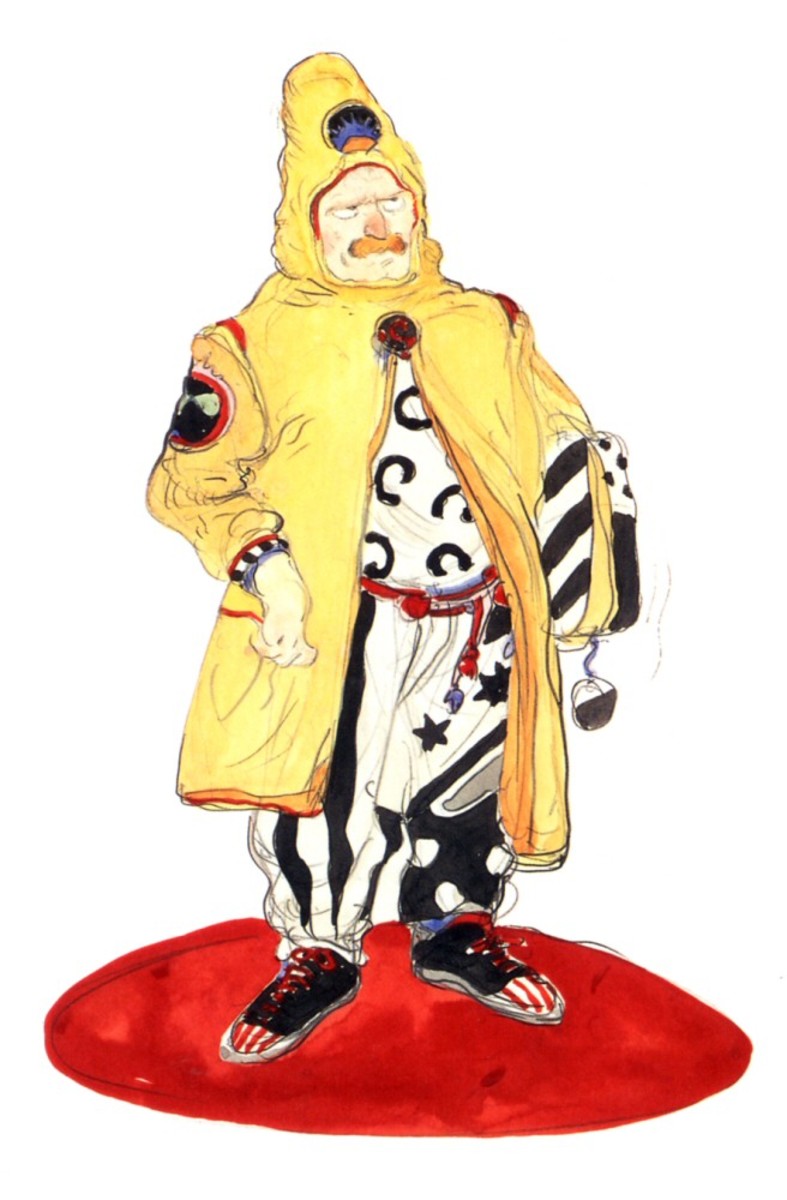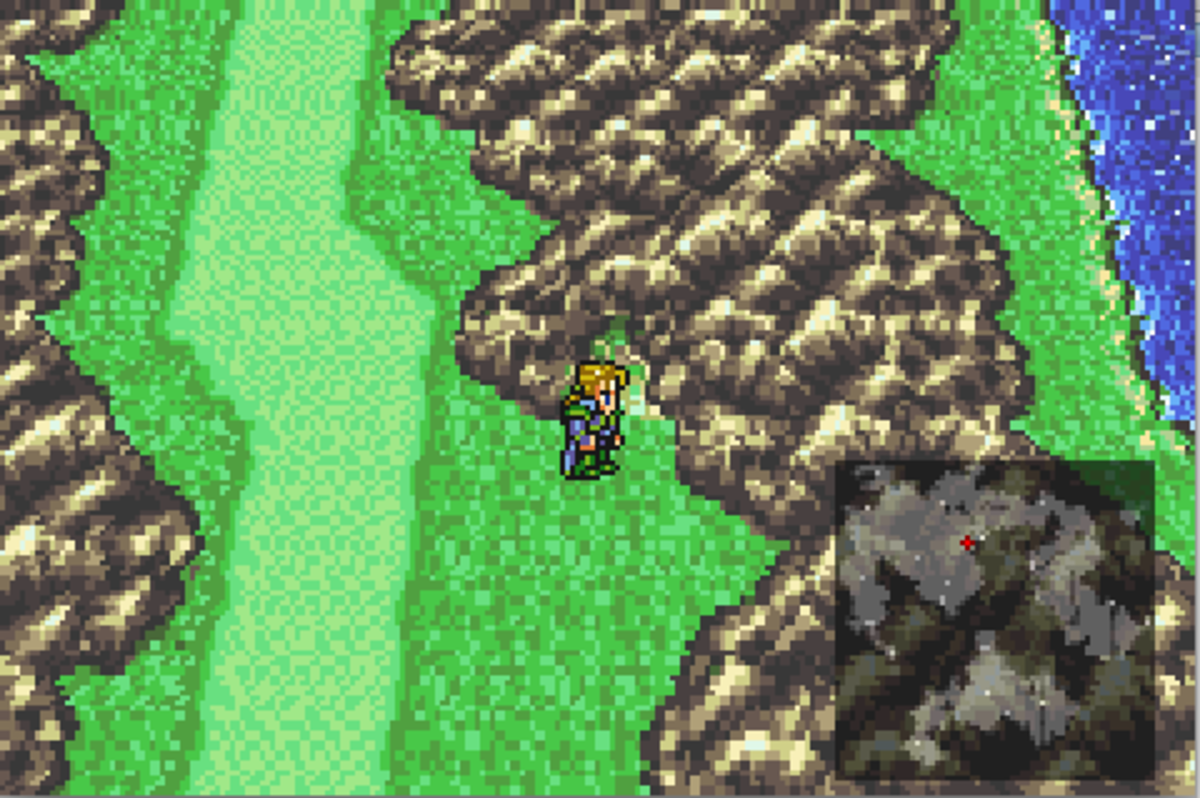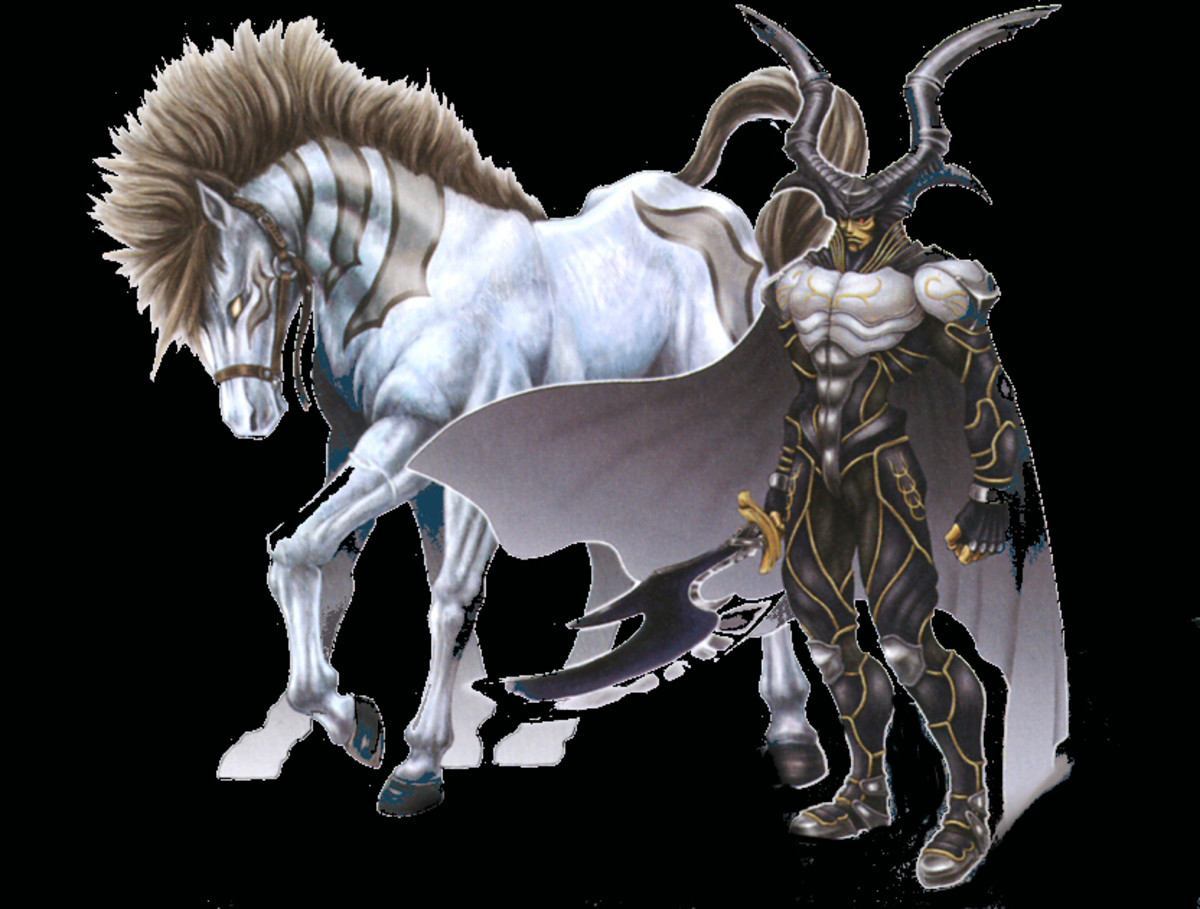- HubPages»
- Games, Toys, and Hobbies»
- Computer & Video Games»
- Roleplaying Video Games»
- Japanese Roleplaying Video Games
Review: Final Fantasy XIII
Note: This is the last of a multi-part series featuring reviews of Final Fantasy games. The author is not reviewing Final Fantasy XIV as he has not played it. Thank you for reading these twelve Final Fantasy reviews.
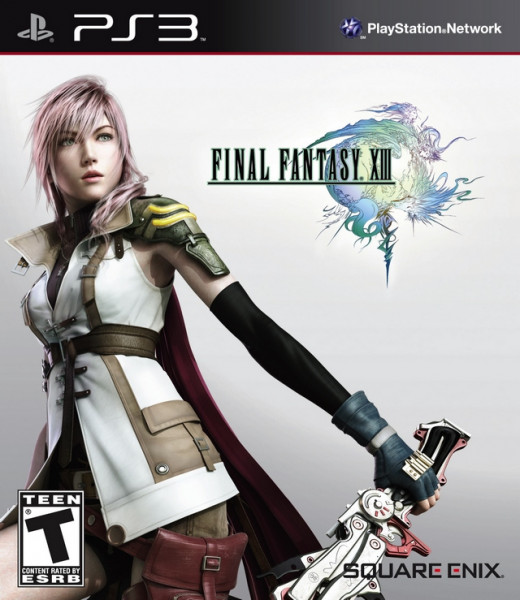
The Final Fantasy That Derailed the Series
In a fifteen year span from 1987 to 2002, eleven main-line Final Fantasy games were released in Japan. From 2002 (Final Fantasy XI's release), it took four years until Final Fantasy XII came out in Japan, then over three more years after Final Fantasy XII's release for Final Fantasy XIII to come out. While Final Fantasy XIV was released one year later in 2010, Final Fantasy XV is still in development and will likely create the longest ever gap between two released of main-line Final Fantasy games. This significant lengthening of development time can be attributed to a number of factors, including the ever-increasing power of game consoles, but that's a side point.
With that in mind, though, Final Fantasy XIII has since been given two direct sequels: Final Fantasy XIII-2, which was released two years later in Japan, and Lightning Returns: Final Fantasy XIII was came out two years after that. The three games now comprise the "Lightning Saga", a trilogy of games that details the plights of the protagonist of two of the games, Lightning. Meanwhile, a title that was announced concurrently with Final Fantasy XIII, Final Fantasy Versus XIII, intended to be a more action-RPG oriented game mostly unrelated to Final Fantasy XIII, has yet to see a release, and development time for that game has taken so long it has now since become the now upcoming Final Fantasy XV.
Many fans of the series were not fond of Final Fantasy XIII for a number of reasons I'll get into shortly. It, then, didn't serve them any good to see two different sequels get announced for this game while other games they were looking forward to were seemingly left in the dust. As such, the original Final Fantasy XIII has been given a more negative reputation in recent years, and the entire "Lightning Saga", while still faring moderately well sales-wise, has been ridiculed by many for its excessive use of Lightning whom is perceived to be popular only within Square's development team.
While its legacy might be shaky, it starts from somewhere, and it starts with the perception that Final Fantasy XIII - the game that for many derailed the series - was not that great of a game. Personally, while the game has some merits, I do tend to agree with these sentiments on the basis that the game likes to play itself more often than not.
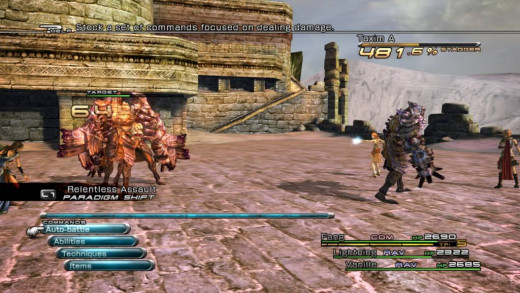
Auto-Battle: The System
Final Fantasy XIII introduces the Paradigm system. Each character is able to swap between a number of "classes" (three for awhile before each character gains access to all six) which varies between Commando (the 'knight' of the game), Sentinel (a defensive-heavy class), Medic, a class focused on healing, and more. Each class has its own "grid" or "table" characters can access to learn abilities or stat boosts with points earned in battle (there is no leveling up in this game).
The player can then assign class presets for battle known as "Paradigms", which the player can then shift between during battle depending on the situation. For instance, a player can start off at first with two Commandos and a Ravager (the black mage of the game), but if health gets low, the player can swap on the fly to a Paradigm featuring a Sentinel and two Medics. For boss battles, players could set up a Sentinel - Synergist (mage who buffs the party) - Saboteur (mage who debuffs the enemy) lead Paradigm then switch to an offense-heavy Paradigm once everything is set up.
While this is a very interesting system in theory, the problems begin with how the game streamlines the system. There is no MP in the game, so players can cast spell after spell with no worry for conservation. Further, characters are fully healed after every battle, so what little survival elements existed in previous games do not exist here, though as a plus because of this fact battles are generally more difficult than in games past.
Additionally, the game allows the player to do the actions of their class automatically via the "Auto" command that essentially replaces the "Attack" command from earlier games. The character, to start, can perform up to three actions per "cycle", but they can do more as the game progresses. The player can also tell characters to use specific abilities if need be, or to switch to paradigms even during combat cycles. Its important to note that you control the abilities of only one character at a time; the other two characters are automated regardless.
The game also features a "stagger" system that you need to use to defeat multiple enemies and bosses. As you compile damage on the enemy, their "stagger" percentage rises, and if that percentage hits a high enough amount, then they become, well, staggered, and the party can deal damage equal to the multiplied percentage e.g. triple damage at 300%. This makes constant attack a larger priority than normal (or at least once you set up your buffs/debuffs), and gives you a rather basic goal for every battle to reach your enemy's stagger point to deal massive damage.
So, basically, it's a deep, intricate battle system that makes standard battles particularly boring if you know what you're doing. Regardless, its a pretty solid system, one that was brought back nearly unchanged for Final Fantasy XIII-2.
Final Fantasy XIII (PS3) on Amazon
Playing on Rails
Another major criticism towards the game is directed towards its linearity for a good portion of its story. For much of the game's first half, you're locked into a set of two or three characters as you progress their specific plotlines and development. Once you can control of your characters in the field, there's usually only one direction to go on maps: forward. Sometimes there will be treasure orbs to open up that slightly deviate from the path, but the minimap picks these up and its of little hassle.
There are no random battles as has been the case since Final Fantasy XI, enemies are on the field and you approach them (or vice versa) to initiate combat. Most of the time, these enemies take up an entire portion of your single path so you're forced into battle, though rarely there are instances where you can take a slightly different path to reduce or even increase the number of battles you fight.
With the linearity of the maps, the auto-combat battles, the lack of necessity of post-battle healing and, at times, cutscenes at every corner, it can sometimes be difficult to really engage yourself in Final Fantasy XIII, even after the game finally opens up in the latter half to allow the player to engage in sidequests or hunts. By the time that point finally arrives, the sudden change of game design is a bit jarring even if it is for the better.
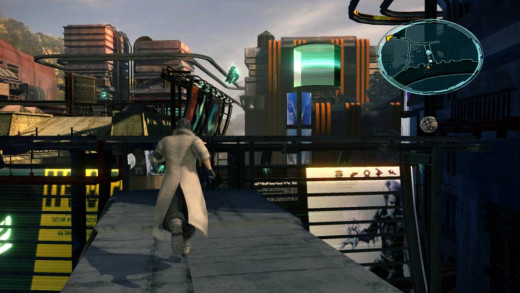
The Next Gen Experience
Lets take a moment to appreciate Final Fantasy XIII from a technical standpoint. It was the first Final Fantasy released for the PlayStation 3 (and the Xbox 360), but lets compare it to other Final Fantasy games that were its system's debut Final Fantasy game:
- Final Fantasy IV came out just months after the Super Famicom's Japanese release, and it basically looks like the NES Final Fantasy games but with more vivid colors and effects.
- Final Fantasy VII came out just a little over two years after the PlayStation's release, and even then it still came with low-poly graphics and moments where you can tell some of the game's possible content had to be cut.
- Final Fantasy X came out a little over a year after the PlayStation 2's release, and while the graphics looks fairly well even today, the in-game cutscene animations leave a lot to be desired.
- Final Fantasy XIII didn't come out until three years after the PlayStation 3's release, and you can tell Final Fantasy XIII made great use of the PS3's capabilities.
The visuals look very crisp in fluid during cutscenes especially, though in normal gameplay the visuals become a bit muted in terms of impressiveness. The game has a lot of cutscenes, including several flashback scenes, so they may as well look as great as possible.
By this point, Nobuo Uematsu, who had been series composer for so many games, had basically no involvement in this game's soundtrack. Instead, Masashi Hamauzu composed the game's soundtrack and, thankfully, a lot of if sounds wonderful. Its not the same type of music commonly seen with Uematsu's work but many of the game's tracks works well within the game, though as a fan it is somewhat a shame this game does not feature the famous fanfare track at all, a (single-player) series first, nor does it feature the prologue theme which has been in many other games in the past.
Even so, the game is nice to look at and fun to listen to. Of course, you can just watch cutscene videos on Youtube (especially nowadays now that they've upped their quality limits), and listen to OST music separately without having to play through the game.
Where to Play Final Fantasy XIII (Outside of Japan)
Name
| Platform
| Version
| Notes
|
|---|---|---|---|
Final Fantasy XIII
| PlayStation 3
| Original
| First single-player multi-platform Final Fantasy
|
Final Fantasy XIII
| Xbox 360
| Original
| First single-player Final Fantasy released on Microsoft a console
|
Ratings
Rating
| |
|---|---|
Gameplay
| 3/5
|
Graphics (by PS3 standards)
| 5/5
|
Audio
| 4/5
|
Plot
| 3/5
|
Replaybility
| 2/5
|
Challenge
| 3/5
|
Conclusion: Lasting Legacy
With complaints towards the game's linearity prevalent, something addressed even by members of the development team and by Square Enix itself, efforts were made to address these issues.
For starters, two games announced alongside Final Fantasy XIII (Agito XIII and Versus XIII) were separated from the Final Fantasy XIII universe and became their own games (Final Fantasy Type-0 for the PSP and Final Fantasy XV, respectively).
From there, Final Fantasy XIII-2 was announced, promising to be a much more open-world experience compared to the first game. The game was more enjoyable than Final Fantasy XIII from gameplay standpoints but the game's plot started to reach "nonsensical" levels.
Then, for some reason, Square believed the Lightning story needed a "proper" conclusion, whether there was any demand for such is unknown, but Lightning Returns: Final Fantasy XIII was released to conclude Lightning's story. More of an action-RPG with time-limit constraints, the plot basically gave up trying to make sense, and just did whatever it felt like just so Lightning got her happy ending.
This, while Type-0 saw little hype upon release, Final Fantasy XIV was an initial disaster and Versus XIII at the time in the middle of development limbo before its new reveal in 2013. In addition to that, a plethora of Final Fantasy games and remakes have seen re-release on mobile markets, including the dreadful Final Fantasy: All the Bravest which featured very basic touch-gameplay and emphasis on in-game app purchases.
The series' reputation has suffered several critical blows over the past four years or so. Final Fantasy XIII can be considered a cause for it, as all of these mistakes happened after Final Fantasy XIII's release. People are hoping Final Fantasy XV can "save" the series, even with its massive shift in gameplay direction. Others consider the 3DS's Bravely Default to be the Final Fantasy Square Enix refuses to do nowadays. Pessimism towards the series is at an all time high, but its still unfair to source this hate towards Final Fantasy XIII.
Final Fantasy XIII is a solid game, among the weaker entries in the series, sure, but it has an interesting battle system and a great presentation. Its major flaws hinder it, obviously, but to make the game a scapegoat for the problems plaguing the series now is unneeded. Its worth playing through this game once, to experience it on its own merits separate from its sequels and Square Enix's misgivings, and once you do, you'll find that its not as bad as some people make it out to be.


